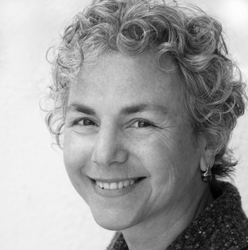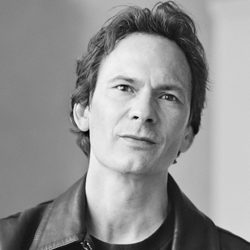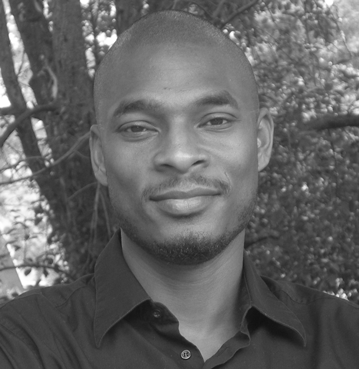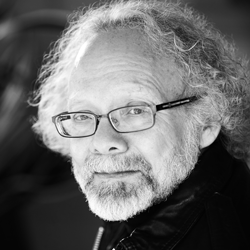Ellen Bass
American Poets: What do you find exciting about American poetry at the moment?
Ellen Bass: There are so many gifted poets emerging now. I’m especially struck by the surge of brilliant African American poets. I think we have the Cave Canem Foundation to thank for its deep nurturance of many of these poets. When a group of people inhabit their voice, oppression is transformed into amazing poetry. Another thing I find exciting is readers! I see people turning to poetry for solace and inspiration—and not only to poems that speak directly to their circumstances, personally or politically. Any excellent poem asks us to stop, to pay attention. A poem has the capacity to change us. I find it hopeful that people are seeking this transformation through poetry.
Another thing I find exciting is readers! I see people turning to poetry for solace and inspiration—and not only to poems that speak directly to their circumstances, personally or politically. Any excellent poem asks us to stop, to pay attention. A poem has the capacity to change us. I find it hopeful that people are seeking this transformation through poetry.
AP: Which recent books of poetry have you found impactful and would recommend to our readers?
EB: Robin Coste Lewis’s Voyage of the Sable Venus (Alfred A. Knopf, 2015); Jericho Brown’s The New Testament (Copper Canyon Press, 2014); Lucia Perillo’s Time Will Clean the Carcass Bones: Selected and New Poems (Copper Canyon Press, 2016); and Lynn Emanuel’s The Nerve of It: Poems New and Selected (University of Pittsburgh Press, 2015).
AP: Is there a poem you find yourself continually returning to and rereading for guidance or solace?
EB: I return again and again to Lucille Clifton’s “sorrows” and Marie Howe’s “What the Living Do.”
Forrest Gander
American Poets: What do you find exciting about American poetry at the moment?
 Forrest Gander: I can’t imagine that there’s ever been a wider variety of approaches to North American poetry than there is at this moment.
Forrest Gander: I can’t imagine that there’s ever been a wider variety of approaches to North American poetry than there is at this moment.
AP: Which recent books of poetry have you found impactful and would recommend to our readers?
FG: Shallcross (Copper Canyon Press, 2016) by C. D. Wright; American Urn: Selected Poems (1987–2014) (Ashland Poetry Press, 2015) by Mark Irwin; The Counterpunch (and Other Horizontal Poems) (University of Alabama Press, 2016) by Juan Carlos Flores, translated by Kristin Dykstra; and Don Mee Choi’s Hardly War (Wave Books, 2016).
AP: Is there a poem you find yourself continually returning to and rereading for guidance or solace?
FG: “The World” by William Bronk.
Terrance Hayes
American Poets: What do you find exciting about American poetry at the moment? Terrance Hayes: I find American poetry perennially exciting. Much of my excitement is stoked by optimism. New poems get made every year. A lot of them are bad, some of them good enough to do no harm, and every now and then you find a truly amazing poem or two.
Terrance Hayes: I find American poetry perennially exciting. Much of my excitement is stoked by optimism. New poems get made every year. A lot of them are bad, some of them good enough to do no harm, and every now and then you find a truly amazing poem or two.
AP: Which recent books of poetry have you found impactful and would recommend to our readers?
TH: These books are by my bed: Monica Youn’s Blackacre (Graywolf Press, 2016), Simone White’s Of Being Dispersed (Futurepoem Books, 2016), Phillip B. Williams’s Thief in the Interior (Alice James Books, 2016), Frank Stanford’s What About This: Collected Poems of Frank Stanford (Copper Canyon Press, 2015).
AP: Is there a poem you find yourself continually returning to and rereading for guidance or solace?
TH: There are several if you remove “for guidance or solace.” I return to Gwendolyn Brooks’s poem “The Mother” for something bittersweet.
I return to Keats’s “To Autumn” for the way it feels
(especially that first stanza) in the mouth.
David St. John
American Poets: What do you find exciting about American poetry at the moment?

David St. John: The explosive diversity, both culturally and stylistically. I increasingly feel that this has made American poetry both lasting and breathtaking. I’ve always felt American poetry is strongest when it acknowledges and champions a plurality of voices. At this moment in our poetry we are—I hope—moving toward a critical mass of diverse poetic voices that may help us to resist the inhumane doctrines we all continue to face in this country. I also feel that the more we’re able to absorb the work of many of the great poets we have in translation, the more we will be able to understand the historical crossroads we’re now at as a culture. I still believe that art, especially poetry, can help us to get through difficult, even impossible, times. Of all of the arts, poetry is the one traditionally gathered from the voices at the margins as well as the voices at a culture’s heart. Even with our exceptional soloists, a culture’s poetry finds its greatest power as a choir.
AP: Which recent books of poetry have you found impactful and would recommend to our readers?
DS: I like to read almost everything recent. I’m pretty much a poetry blender, so I keep my eye out for all kinds of new books, especially by young poets. Still, when I lose faith in things around me—I mean the world, not poetry—I look back to familiar poets. I read Galway Kinnell, especially The Book of Nightmares (Houghton Mifflin, 1971); Adrienne Rich, especially Diving into the Wreck: Poems, 1971–1972 (W. W. Norton, 1973); Philip Levine, the new posthumous book, The Last Shift (Alfred A. Knopf, 2016), gathered together by Edward Hirsch, which is a wonder; Charles Wright, really anything, but this past year, Bye-and-Bye: Selected Late Poems (Farrar, Straus and Giroux, 2011) and Caribou (Farrar, Straus and Giroux, 2014). I also discovered the work of Fiona Sze-Lorrain through her gorgeous book The Ruined Elegance (Princeton University Press, 2016), and it was especially exciting to see how Jorie Graham selected and recontextualized her work in From the New World (Ecco, 2015). It’s probably time I went back and reread an old favorite, Alice Notley’s The Descent of Alette (Penguin Books, 1992), for the window she opens onto familiar tyrants. Oh, and I love Jane Mead’s new book-length elegy for her mother, World of Made and Unmade (Alice James Books, 2016). Two of my favorite books of recent years are by poets who are writing in what appears to be prose: Claudia Rankine’s Citizen: An American Lyric (Graywolf Press, 2014) and Maggie Nelson’s The Argonauts (Graywolf Press, 2015). Of course, their lines, even when not lineated, ripple with a poetic, lyrical sinew.
AP: Is there a poem you find yourself continually returning to and rereading for guidance or solace?
DS: Well, like many poets, I find myself returning again to Elizabeth Bishop’s “One Art.” I can’t help it. The single best reading of any poem I have ever heard was of this poem being read by James Merrill at the dedication of Bishop’s papers to the library at Vassar. His reading not only conveyed Bishop’s delicacy and formal reserve but also Merrill’s own deep, resonant sense of loss at the death of Bishop, who of course had been his dear friend. Also, there are two poems that I first heard Philip Levine read aloud when I was eighteen and his student—both are translations of postwar Polish poetry and they have remained touchstones for me ever since. The first is “In the Middle of Life” by Tadeusz Różewicz and the second is “At the Gate of the Valley” by Zbigniew Herbert. In Miłosz’s translations, these both became essential poems not only for me, but for many other American poets as well.
